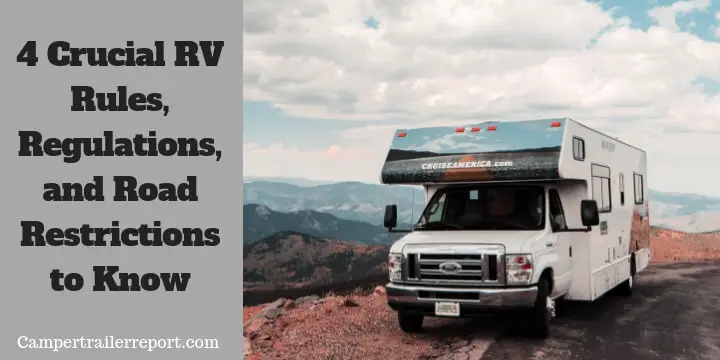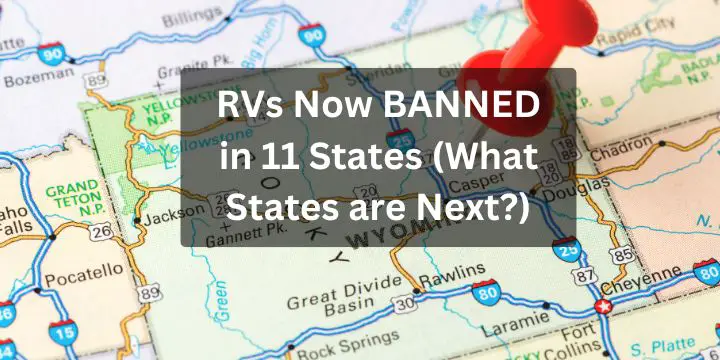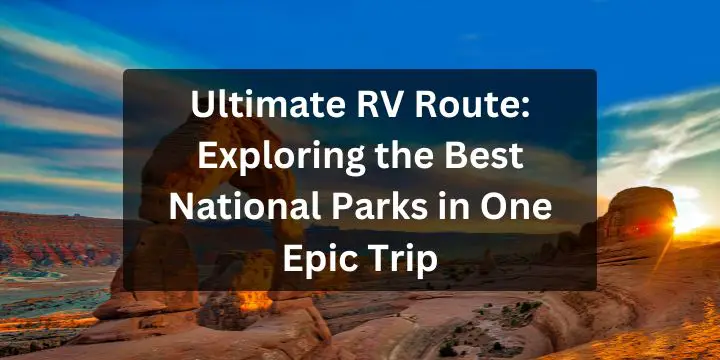4 Crucial RV Rules, Regulations, and Road Restrictions to Know
Camping is a fun moment, but hell can break loose if you find yourself head to head with the law. There are set RV rules, regulations and road restrictions you must abide by when you are out and about with your RV.
These restrictions run the gamut from weight and dimensions of the RV, highways and the items you haul or carry with you.
It would be unwise to heat into an unknown RV camping ground without first knowing the rules and regulations that govern that area.
This article offers you a sneak preview of some of the ordinary laws, but there is a catch. The information I provide here is extraordinarily general and just a fraction of the legal issues you may have to deal with.
My aim and this document intended to provide you with some sort of a springboard to further research into different elements of your rig that you need to put in consideration as you travel.
Legal Issues Associated With Length, Width, and Height of Your RV
States differ in terms of the regulations they put concerning the length, width, and height of your rig. This turns to a big problem if you have to travel across the country. In general, the maximum acceptable height varies from 13.5 – 14 feet while the maximum legal length ranges from 40 feet to more than 50 feet.
What if you have two vehicles and towing a trailer or a boat at the same time? Do not worry. You can find out if you visit the folks at Good Sam. You will find a helpful table that tells you where you can visit and along with the acceptable dimensions, so you do not get into problems with the law.
Some states will point you to the roadside for a weighing scale. Be sure to research the maximum acceptable weight before you set on a trip.
> You may also like:45 RV Accessory Must-Haves for Your Travel Trailer<<
Driver Licenses
There is no doubt you are qualified to drive your recreation vehicle with regular driving license. But some RVs are enormous. For that reason, you may require a different driving license to operate them. After all, you must prove that you can drive such a big vehicle responsibly and safely, right?
FMCSA (Federal Motor Carrier Safety Administration) has put in place rules for the kind of vehicles that require commercial driving licenses. But a few states aren’t easily convinced, so they have come up with even stricter laws.
You may need a driving license that is not necessarily the CDL if your rig is unusually heavy typically in excess of 26,000 pounds or heavier. I’m confident you won’t find yourself in need of this special license unless the RV you are driving is monstrous.
Trailer Rules and Regulations
The odds are that you’ll be towing or hauling something with your RV. But again it’s not a must. If you have a trailer, certain stains may require it to feature some safety devices like sway control, equalizing hitches as well as independent brake systems.
In case your trailer is heavier, breakaway brakes may be required. Research these issues so that you do not spend a night behind bars or pay a fine you did not detail for before leaving your home.
Campsite Rules and Regulations
Assuming you have complied with the above rules, campsite rules may appear insignificant at best. But, be realistic. Campground rules and regulations exist, and you must abide by them. Ironically, these rules are put in place to provide for your safety and comfort.
Many national parks and campsites will not accept firewood or any other wood coming from anywhere apart from that locality. The aim is not to economically benefit the locals of that site but to prevent the spread of invasive foreign species that may damage the ecosystem in the campground.
Campgrounds and national parks also ban the use of fireworks and glass containers for apparent reasons. Resist any temptations to carry such things; they are illegal in almost all campsites and national parks.
Wrapping It Up
I wish to reiterate the fact that this post is not a legal document. So, you must do your own assignment to find out the legal requirement in your state and the states you are likely to cross. Some rules may apply based on the size and measurement of your rig and your destination states. Ultimately, you may have to talk to RV camping experts.
> You may also like:Worst 5th Wheel Brands to Avoid <<



